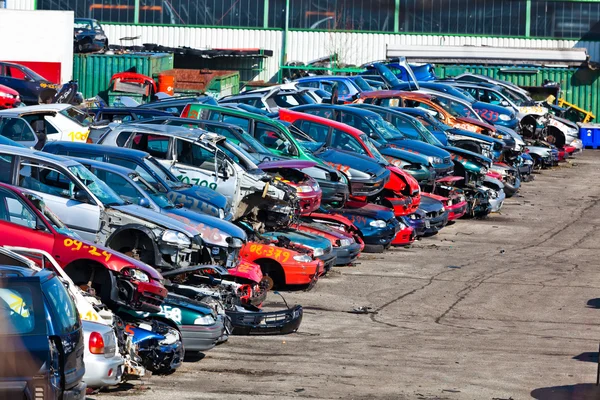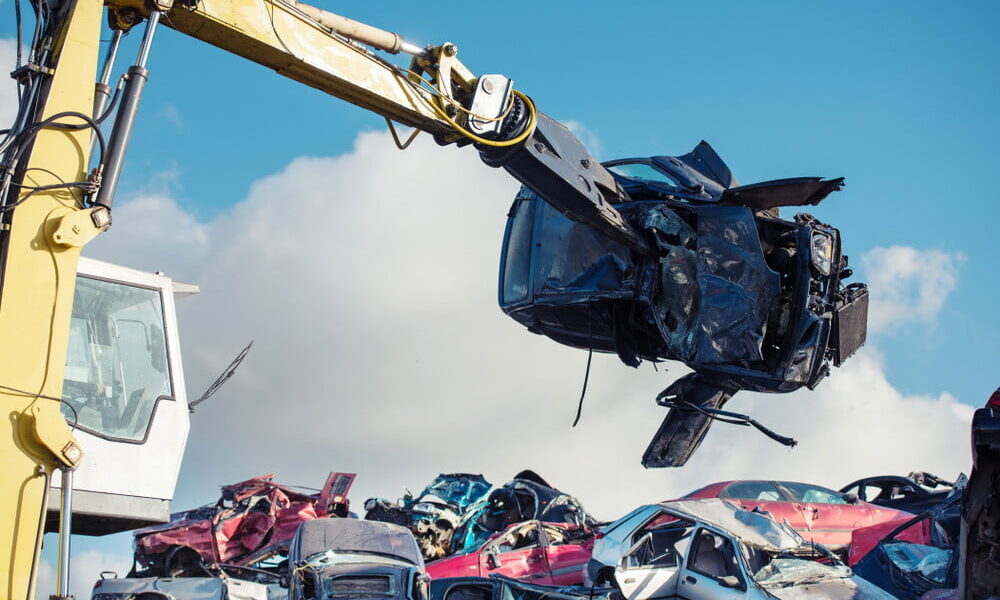A Step-by-Step Guide: How to Scrap Car in Singapore the Right Way
When the time comes to retire your trusted vehicle, knowing how to scrap car in Singapore is essential for navigating the process smoothly and responsibly. Scrapping a car may seem like a daunting task, but with Singapore’s efficient systems and clear guidelines, the journey can be surprisingly straightforward. Let’s delve into the details, ensuring you get the best value while complying with local regulations.
Why Scrap a Car in Singapore?
In Singapore, scrapping a car isn’t just a personal choice; it’s often dictated by financial and environmental factors. The high cost of owning a car—driven by the Certificate of Entitlement (COE) system—means that many vehicles are scrapped or deregistered after their COE expires, usually within 10 years.
According to the Land Transport Authority (LTA), around 40% of vehicles deregistered annually are scrapped, while others are exported. Scrapping is often the preferred choice for older cars with limited resale value or high maintenance costs.
Understanding the Scrapping Process
Before jumping into the details, it’s crucial to grasp what scrapping entails. In essence, scrapping involves deregistering your vehicle with the LTA and delivering it to an authorised scrapyard or export company. This ensures that the vehicle is properly dismantled, recycled, or repurposed in an environmentally responsible manner.
Step 1: Prepare for Deregistration
The first step is deregistering your car with the LTA. This process officially removes your vehicle from Singapore’s vehicle registry. Follow these steps to get started:
Check Your COE Rebate:
If your car’s COE has remaining validity, you’re entitled to a pro-rated rebate. For example, scrapping a car with two years left on its COE could return up to 50% of your COE premium.
Review the PARF Rebate:
Cars under 10 years old are eligible for the Preferential Additional Registration Fee (PARF) rebate, which can cover up to 75% of the car’s ARF value.
Settle Outstanding Payments:
Ensure all loans and fines are cleared to avoid complications during deregistration.
Step 2: Choose an Authorised Scrapyard or Exporter

Singapore has a network of authorised scrapyards and export companies regulated by the LTA. Choosing the right one is critical:
Authorised Scrapyards:
These facilities are licensed to dismantle vehicles and issue Certificates of Disposal (COD), which you’ll need for rebate claims.
Export Companies:
If your car is still in good condition, exporting it might fetch a higher value. Most export companies handle deregistration and logistics for you.
Price Comparisons:
Request quotes from multiple providers to ensure you get the best deal. Prices for scrap cars in Singapore can vary based on the vehicle’s make, model, and condition.
Step 3: Handover Your Vehicle
Once you’ve selected a scrapyard or exporter, it’s time to deliver the car. Here’s what happens:
Documentation:
Provide the scrapyard or exporter with your vehicle log card, NRIC, and proof of deregistration.
Inspection:
The facility will assess the vehicle’s condition to determine its scrap value.
Certificate of Disposal (COD):
For scrapyards, ensure you receive this certificate as proof that the car has been scrapped.
Step 4: Claim Your Rebates
The final step is claiming your COE and PARF rebates, if applicable. The LTA allows you to submit claims online through their OneMotoring portal:
- Log in with your SingPass credentials.
- Upload the required documents, including the COD.
- Track your rebate status and await processing, which typically takes four to six weeks.
Benefits of Scrapping a Car in Singapore
Beyond compliance with regulations, scrapping offers tangible benefits:
Environmental Responsibility:
Scrapping ensures that valuable materials like metal, rubber, and glass are recycled, reducing waste and supporting sustainability.
Rebate Recovery:
By scrapping, you can recover significant sums through COE and PARF rebates.
Space Optimisation:
Removing old, unused cars from the roads reduces congestion and frees up parking spaces in Singapore’s densely populated urban landscape.
Key Considerations When Scrapping Your Car
Scrapping a car isn’t just about convenience; it requires careful planning to maximise value and ensure compliance. Here’s what to keep in mind:
Timing Matters:
Scrapping your car before its COE expires can yield higher rebates.
Understand Market Trends:
Scrap metal prices fluctuate, affecting the value offered by scrapyards. Research current rates before committing.
Choose Licensed Operators:
Work only with LTA-authorised facilities to avoid scams and ensure proper disposal.
Singapore Statistics That Illustrate the Impact
Singapore’s stringent vehicle policies lead to high turnover in the car population. Statistics from the LTA reveal that in 2022:
70,000 cars were deregistered, with a significant portion scrapped.
- Recycling initiatives saved an estimated 10,000 tonnes of metal waste, underscoring the environmental importance of scrapping.
- Approximately 85% of materials from scrapped cars were successfully recycled or repurposed.
These figures highlight the dual economic and environmental significance of scrapping cars responsibly.
Common Mistakes to Avoid
Even with a clear process, mistakes can happen. Avoid these pitfalls:
Delaying Deregistration:
Postponing the process can result in higher fees or penalties.
Accepting Low Offers:
Always compare offers from multiple scrapyards to secure the best deal.
Overlooking Documentation:
Missing paperwork can delay rebate claims and complicate the process.
Why Scrapping a Car in Singapore Is Worth It
Knowing how to scrap car in Singapore is more than just following a procedure—it’s about making informed decisions that benefit your wallet, the environment, and the nation’s infrastructure. With efficient systems, substantial rebates, and the added satisfaction of supporting sustainability, scrapping a car in Singapore is both practical and rewarding.
So, when it’s time to say goodbye to your vehicle, follow these steps, stay informed, and ensure that every aspect of the process aligns with your goals. After all, understanding how to scrap car in Singapore isn’t just a matter of logistics—it’s a chance to contribute meaningfully to a greener future.




